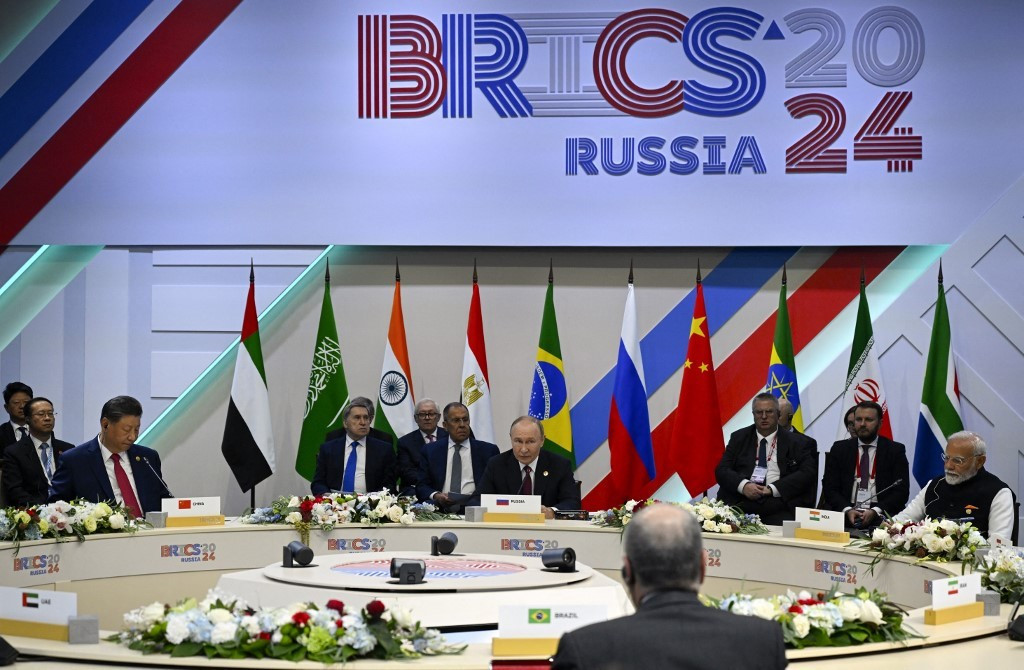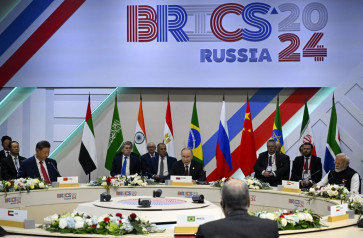Popular Reads
Top Results
Can't find what you're looking for?
View all search resultsPopular Reads
Top Results
Can't find what you're looking for?
View all search resultsAnalysis: Indonesia overcomes skepticism to join BRICS
Change text size
Gift Premium Articles
to Anyone
I
ndonesia has every reason to be skeptical about the prospect of the intergovernmental organization knowns as BRICS. Questions regarding its effectiveness in reforming the global financial system still abound, as well as whether it is too much of an anti-West group led by China that would not necessarily serve Indonesia’s national interests.
But only three days after his inauguration, President Prabowo Subianto decided to overlook this skepticism to apply for Indonesia’s membership. Last week, he sent Foreign Minister Sudiono to Kazan in Russia to attend the BRICS summit on his behalf, where Indonesia announced its interest to join.
BRICS, now counting nine members, has accepted Indonesia along with 12 other nations, which will receive full membership status at the group’s next summit in Brazil in 2025.
BRIC was formed in 2009 and comprises emerging market economies Brazil, Russia, India and China, hence the four-letter acronym. It became BRICS the following year when it admitted South Africa. Egypt, Ethiopia, Iran and the United Arab Emirates joined this year. Turkey and neighboring Malaysia, Thailand and Vietnam are also among the countries admitted to join, which, like Indonesia, will begin next year.
Based on economic size of emerging economies, Indonesia should have been among the first members, but Jakarta has turned down repeated offers from the group. Last year, then-president Joko “Jokowi” Widodo attended the BRICS summit in South Africa. He did not commit Indonesia to join, but said that the government was studying the pros and the cons of membership.
The “pros” include the fact that Indonesia shares BRICS’ main agenda to reform the Bretton Woods international financial system, particularly the World Bank and the International Monetary Fund (IMF), which it deems as undemocratic and dominated by the West. Jokowi made many speeches criticizing both the World Bank and the IMF for sidelining the interests of the Global South.
Indonesia has also been exploring the prospect of reducing its dependence on the use of the United States dollar for international trade, along with its ASEAN neighbors, but has not gotten very far. BRICS’ own “de-dollarization” program seems to be picking up pace, with members starting to use their own respective currencies in trade.



















